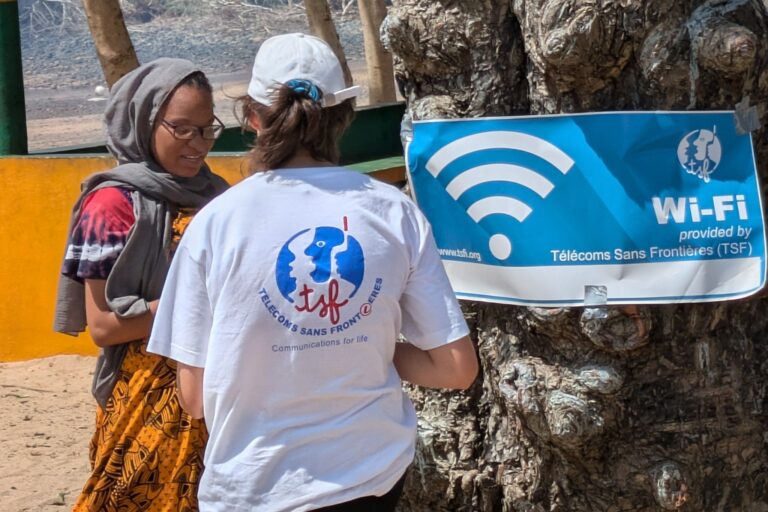
Leading the charge in allergy diagnostics
Thermo Fisher Scientific’s Santhosh Nair explains how advanced in-vitro diagnostics are transforming allergy care across Europe, enabling faster, more precise testing and improving outcomes for millions.

Thermo Fisher Scientific’s Santhosh Nair explains how advanced in-vitro diagnostics are transforming allergy care across Europe, enabling faster, more precise testing and improving outcomes for millions.

Karen Nadasen, CEO of PayU Africa, highlights how digital payments are driving financial inclusion across Africa, enabling economic opportunities and transforming access to financial services.

Mobile money is enabling millions in Sub-Saharan Africa to access financial services, driving economic growth, and empowering underserved communities, particularly women, through innovative digital solutions.

Local governments must prioritize digital transformation to create smarter, more efficient cities. By investing in IoT infrastructure, data management, and AI, they can enhance services, boost economies, and improve citizens’ quality of life.

Discover how technology drives financial inclusion in developing countries, enhancing access to banking, loans, and cross-border payments through innovative fintech, blockchain, and digital wallets.

Seizo Onoe of International Telecommunication Union explores how AI-powered agriculture can boost food security, optimise farming, and support sustainability—helping to feed a growing global population.

Dr. David Nickell and Corinne Bonadei of dsm-firmenich explore how precision livestock farming and data-driven tech can tackle global hunger while reducing agriculture’s environmental impact.

Telemedicine is transforming healthcare access. Kat James, Director of New Projects at Consultant Connect, shares how simple tech solutions are bridging gaps for underserved communities in the UK and beyond.

Alicia Staley, Chief Patient Officer at Medidata, highlights the need for diversity in clinical trials, exploring how AI and patient-centred technology improve accessibility and inclusivity.

Matthew Jenkins, founder of Dream and Leap, examines technology’s impact on mental health, urging leaders to foster balance and ensure it enhances, rather than overwhelms, human wellbeing.

Antony Paul, Global Product Head at Quadient, explores how effective communication and automation can help councils build trust and successfully implement smart city initiatives.

Kimberly Brown of GSMA highlights how mobile technology supports humanitarian efforts, providing critical information, aiding crisis response, and addressing challenges including inequality, misinformation, and connectivity gaps.

Navigating online mental health support is often confusing and fragmented. Clearer signposting and better data infrastructure can make finding help as simple as everyday digital tasks.

With rising data center demands, balancing energy efficiency and performance is crucial. AI offers a transformative solution, revolutionising how we optimise resources.

Dmitry Borodin, Head of Decision Analytics at Creditinfo, explores how AI and alternative data are transforming financial inclusion, helping underserved groups access credit and economic opportunities.

AI is revolutionising disaster response, from predictive analytics preventing crises to real-time data aiding relief efforts. Ethical AI solutions empower nonprofits, ensuring technology serves global humanitarian needs.

AI has the power to transform education, easing teachers’ workloads while enhancing learning. But trust, transparency, and public confidence are key to its success.

As AI reshapes industries, its impact on mental health is profound. While it disrupts jobs, it also fosters new opportunities. Human creativity remains irreplaceable.

Robust data management is crucial for disaster response. Accurate, real-time data enables swift decisions, preventing misallocated resources and delays that could cost lives.

Technology is revolutionising disaster response, from AI-driven predictions to emergency telecommunications. As climate change intensifies crises, innovative solutions are vital for preparedness, immediate relief, and long-term recovery.

Michael Lynch, Global Real Time Operations Manager at Enel X on the scale, systems and virtual skills of a modern global network operations centre.

The digital divide in education extends beyond access—it’s about strategy, choice, and impact. Stuart Walker shares five key lessons from his journey in EdTech.

Dulas is transforming healthcare in underserved communities by delivering solar-powered solutions, such as vaccine refrigerators, to ensure reliable immunisations and to build resilient local healthcare systems.

Tech leaders may already know their teams are rich in neurodiversity, but keeping hold of them means intentional action.

John O’Brien MBE, Chairman and Founder of Anthropy emphasises the need for visionary leadership that balances technology with human traits like empathy, creativity, and ethical judgment.

Gilead Science’s PrEP Hub® platform is a gamechanger in the fight against HIV – both the disease and the stigma.

HSCNI, Microsoft and Kainos on their world-beating response to the COVID-19 challenge.

Margareta Mucibabici is Public Affairs Manager for UiPath.
In this podcast, Margareta discusses RPA’s potential to positively impact the world through “automation for good” initiatives.

During an emergency, reliable data can save lives.
Tech For Good speaks to the leadership of the East of England Ambulance Service.

Gartner Predicts 75% of organisations will implement a Data Centre Infrastructure Sustainability Programme by 2027

Discover the best online universities in Australia for 2025. Compare UNSW, Melbourne, Queensland, Monash, Deakin, Griffith, and Curtin to find flexible, accredited, career-focused study options.

Karen Nadasen, CEO of PayU Africa, highlights how digital payments are driving financial inclusion across Africa, enabling economic opportunities and transforming access to financial services.

Mobile money is enabling millions in Sub-Saharan Africa to access financial services, driving economic growth, and empowering underserved communities, particularly women, through innovative digital solutions.

Local governments must prioritize digital transformation to create smarter, more efficient cities. By investing in IoT infrastructure, data management, and AI, they can enhance services, boost economies, and improve citizens’ quality of life.

Discover how technology drives financial inclusion in developing countries, enhancing access to banking, loans, and cross-border payments through innovative fintech, blockchain, and digital wallets.

Seizo Onoe of International Telecommunication Union explores how AI-powered agriculture can boost food security, optimise farming, and support sustainability—helping to feed a growing global population.

Dr. David Nickell and Corinne Bonadei of dsm-firmenich explore how precision livestock farming and data-driven tech can tackle global hunger while reducing agriculture’s environmental impact.

Telemedicine is transforming healthcare access. Kat James, Director of New Projects at Consultant Connect, shares how simple tech solutions are bridging gaps for underserved communities in the UK and beyond.

Alicia Staley, Chief Patient Officer at Medidata, highlights the need for diversity in clinical trials, exploring how AI and patient-centred technology improve accessibility and inclusivity.

Matthew Jenkins, founder of Dream and Leap, examines technology’s impact on mental health, urging leaders to foster balance and ensure it enhances, rather than overwhelms, human wellbeing.

Antony Paul, Global Product Head at Quadient, explores how effective communication and automation can help councils build trust and successfully implement smart city initiatives.

Kimberly Brown of GSMA highlights how mobile technology supports humanitarian efforts, providing critical information, aiding crisis response, and addressing challenges including inequality, misinformation, and connectivity gaps.

Navigating online mental health support is often confusing and fragmented. Clearer signposting and better data infrastructure can make finding help as simple as everyday digital tasks.

With rising data center demands, balancing energy efficiency and performance is crucial. AI offers a transformative solution, revolutionising how we optimise resources.

Dmitry Borodin, Head of Decision Analytics at Creditinfo, explores how AI and alternative data are transforming financial inclusion, helping underserved groups access credit and economic opportunities.

AI is revolutionising disaster response, from predictive analytics preventing crises to real-time data aiding relief efforts. Ethical AI solutions empower nonprofits, ensuring technology serves global humanitarian needs.

AI has the power to transform education, easing teachers’ workloads while enhancing learning. But trust, transparency, and public confidence are key to its success.

As AI reshapes industries, its impact on mental health is profound. While it disrupts jobs, it also fosters new opportunities. Human creativity remains irreplaceable.

Robust data management is crucial for disaster response. Accurate, real-time data enables swift decisions, preventing misallocated resources and delays that could cost lives.

Technology is revolutionising disaster response, from AI-driven predictions to emergency telecommunications. As climate change intensifies crises, innovative solutions are vital for preparedness, immediate relief, and long-term recovery.

Michael Lynch, Global Real Time Operations Manager at Enel X on the scale, systems and virtual skills of a modern global network operations centre.

The digital divide in education extends beyond access—it’s about strategy, choice, and impact. Stuart Walker shares five key lessons from his journey in EdTech.

Dulas is transforming healthcare in underserved communities by delivering solar-powered solutions, such as vaccine refrigerators, to ensure reliable immunisations and to build resilient local healthcare systems.

Tech leaders may already know their teams are rich in neurodiversity, but keeping hold of them means intentional action.

John O’Brien MBE, Chairman and Founder of Anthropy emphasises the need for visionary leadership that balances technology with human traits like empathy, creativity, and ethical judgment.